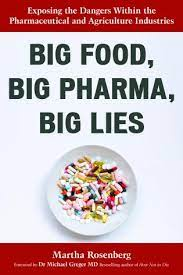

America spends more money per capita on healthcare than any other nation on Earth. You would think that this expenditure would guarantee the best care in the world. That is not the case. In fact, despite being the most expensive healthcare system on Earth, consuming over 16 percent of our GDP, it's one of, if not the least, effective in the developed world. We spend over 10 thousand dollars per capita on healthcare, and not only is the quality of care subpar, we don't even cover everybody, compare this to places like Germany who pay drastically less per capita and guarantee coverage to all their citizens. There were over 27 million uninsured Americans in 2018, and that number will have skyrocketed in recent months thanks to the millions of layoffs across the country. Even before the epidemic, we had more uninsured and underinsured citizens than any other developed nation.
In addition to not covering a large portion of the population, even those with excellent by American standards health insurance struggle to pay medical bills. Over 25 percent of insured people reported having difficulty paying for the exorbitant cost of their treatment. Of this group, 63 percent had to pay most or all of their savings to cover the medical bills, and 42 percent had to get a second job. Life-saving drugs in America often cost ten times what they cost in other countries. For example, in Canada, one vial of insulin cost 32 dollars. In the United States, the same drug from the same factory costs 300 dollars, and that's not even an extreme example, take the HIV drug Truuvada. In Australia, it costs just eight dollars, in the United States, it costs 2 thousand dollars. Despite US taxpayers footing the bill for its development. Every year, over half a million people go bankrupt trying to pay their medical bills. In a country where 40 percent of the population can't afford a surprise 400 dollars expense, an ambulance ride to the hospital will cost you more than twice that amount, and all of this is happening in the richest country on Earth.
If we have the resources and we're so much better than all the other countries, why is our healthcare system so broken? Here's the thing it's not broken. It's functioning exactly as you'd expect it to.
America's healthcare system is for profitfit. That means instead of providing care because it's the ethical thing to do, they only do it because there's a big check involved. Back in the 30 S. Blue Cross and Blue Shield were the two main health insurance providers in the US in those days. They operated as nonprofits and wouldn't turn anyone away for any reason. Then after World War II, employers started offering health insurance as a benefit, and between 1940 and 1955, the percentage of insured Americans jumped from ten percent to over 60 percent. This new demand for health insurance caught the eye of many business people and the for-profit healthcare industry was born. By 1951. Big names like Ena and Signgna were major players in the industry which continued to grow through the 70 s and 80 s.
In the 80 s the country began to see its first for-profit hospitals operated by large investors who owned multi-hospital chains. By 1981, one in seven hospitals in the US was for- profitfit. Suddenly, medical bills became a lot longer and more convoluted. Every little thing became an itemized expense, from tissues to plastic cups to being able to hold your baby after it's born. The hospital's transition from philanthropy to corporation was complete.
This is not normal in other countries. America had taken the intensely cruel step of taking something sacred, the health and well-being of its citizens, and slapping a price tag on it. With this commodification of health came unsurprising. Side effects. Average American life expectancy is lower than other wealthy countries and has actually begun to decrease in recent years compared to other countries slowly increasing. The US has the highest infant and maternal mortality rates of any developed country. The US has higher rates of medical error than other countries. Adults in most other comparable countries have quicker access to a doctor or nurse when they need care, contrary to what American health care advocates would have, you believe to make a long story short. In just about every study on the effectiveness of healthcare systems and developed nations. America scores very poorly most of the time at the very bottom of the list and other nations are taking notice. Towards the beginning of the coronavirus epidemic, one university in Norway urged its students to come home if they were studying in countries with poorly developed health systems, such as the US. Part of the problem is the American obsession with streamlining or optimization. Anything that doesn't immediately increase profits has to go.
Take for example the practice of so-called just-in-time delivery of essential equipment such as ventilators. Instead of having an emergency stockpile including personal protective equipment such as masks and gloves, these items are instead delivered only when the need arises. The idea is to reduce overhead, but in reality it leaves us totally unprepared and underequipped for a national pandemic. That's why we see pictures of doctors and nurses wearing trash bags because their hospitals haven't provided adequate protective equipment, and just to be safe, they're firing people who post those kinds of pictures.
To their credit the CDC was planning to address the national shortage of ventilators, but the company to whom they had given the contract was bought out by a larger company who canceled the project because it wasn't going to be profitable enough, and of course, that larger company's name is coviian because the architects clearly put an intern in charge of our simulation. I could spend all day listing off instances of absurdly high medical bills. But at the end of the day, some people in America will still defend the practice of for-profit health carers. Maybe the best way to get through to these people isn't to show them the bills but to show them what people in other saner countries think of the bills. So here you go ambulance. Call out how much that cost. Ze zero pay payment zero payment ye zero payment no.
Because two and a half 1000 dollars for real an inhaler.
100 dollars yeah, you're pretty price a bit more 100 and 22, 100 and 50 to 300 and 50 for Inhaler. So. Two Epipens, how much do you reckon they are? 80 dollars 606, 100 dollars.
What why 102 100 dollars Yeah? The average is about ten grand. It can go up to 30010 grand.
For a Baby.
It's okay to laugh. It's a funny video, but these are the types of reaction you get when you explain to anyone in a first world country besides the US. Just how screwed up our healthcare system is. We're not paying these exorbitant fees for quality care. We're paying for executive bonuses, shareholder value, and lucrative contracts. Pharmaceutical and medical device companies can charge whatever they want, and the US government will never step in. We're one of the only nations on Earth that doesn't regulate the cost of drugs and medical supplies, and companies negotiate directly with hospitals and insurers to get the best terms not best for the patient, best for them. Drug costs in America are many times higher than in any other country. Why? Because that's how it works. In a for-profit system, the dollar holds infinitely more value to these corporations than human well-being. The needs of the people are secondary to the profit motive.
The American healthcare system is a system that relies on people getting sick and coming in for treatment, which is why we don't see any investment in public health initiatives. A program like Medicare for All would likely solve this and every other health problem produced by the coronavirus pandemic. Everyone would have been able to see a doctor and get tested, which would have given us more accurate data about the illness and its spread. Hospitals wouldn't have to waste energy, dealing with private insurers and fighting them on every little thing. And with the profit motive removed from the healthcare equation, the government would have an incentive to prioritize public health to prevent people from getting sick instead of counting on it. That in turn would make us better prepared for the next pandemic. But remember the system that we have isn't broken. It's functioning exactly as it's meant to.
Why do we pay so much money for the worst care in the developed world? And more importantly, why do we put up with it.
There is A Better Way
